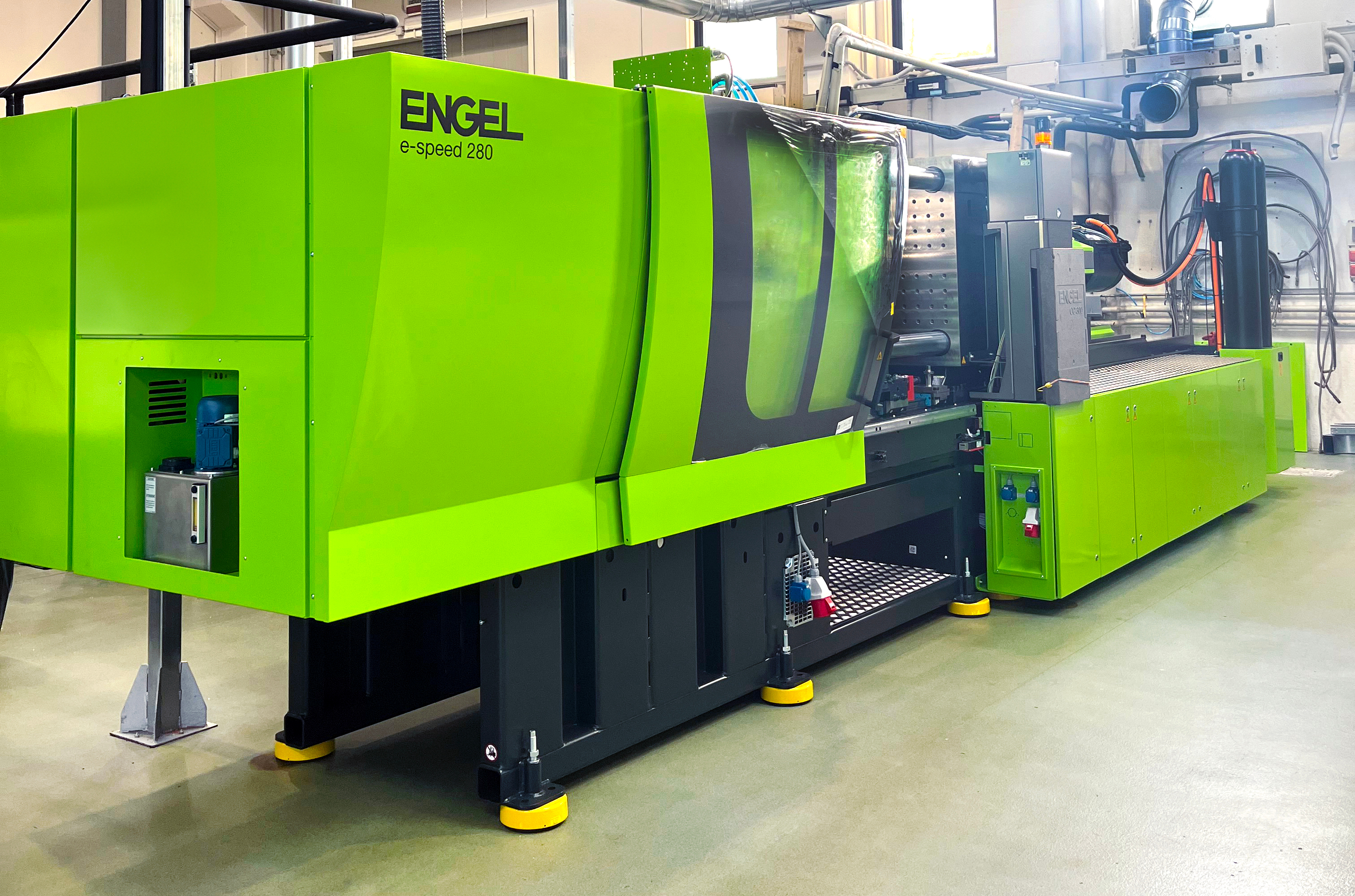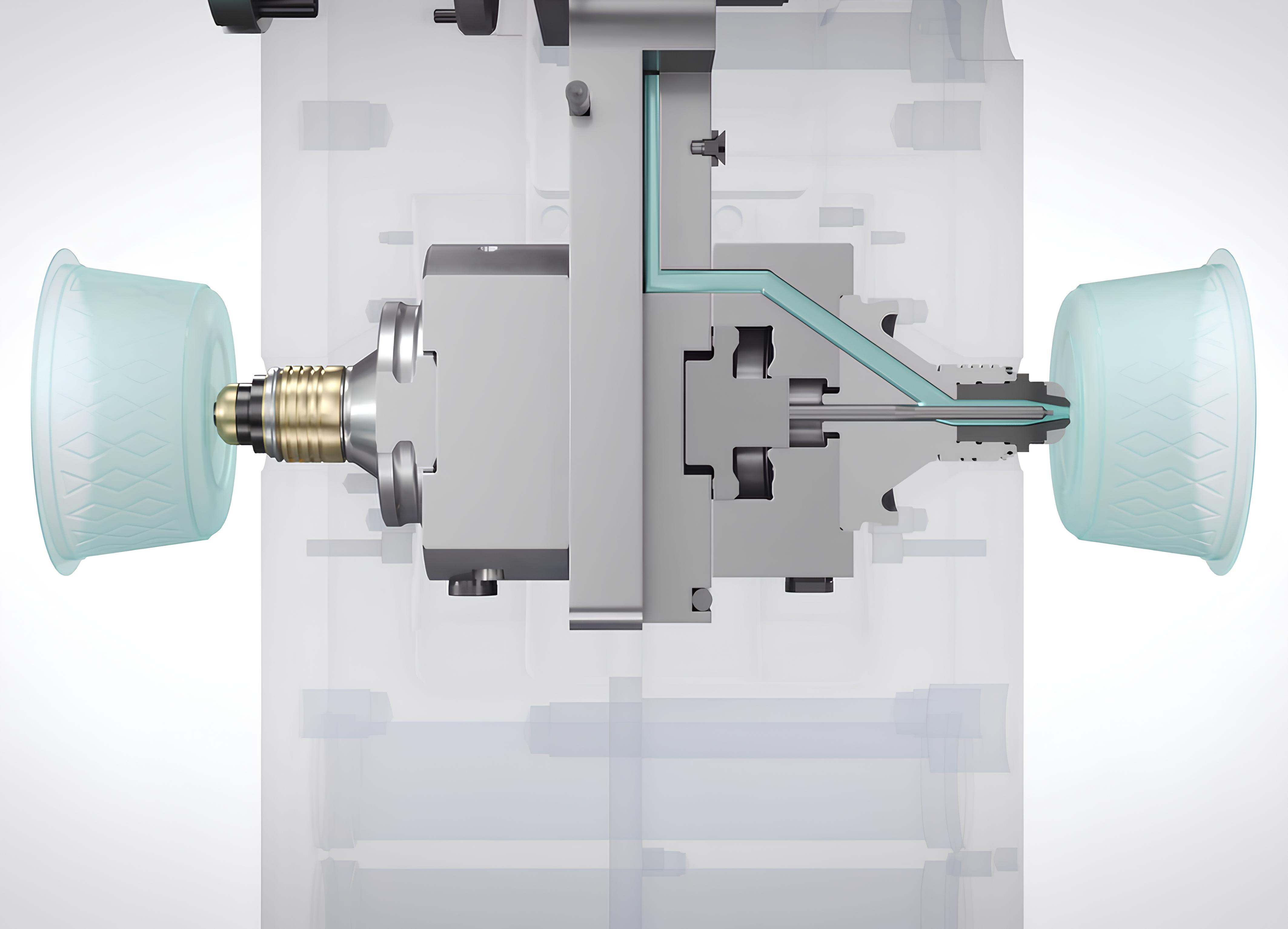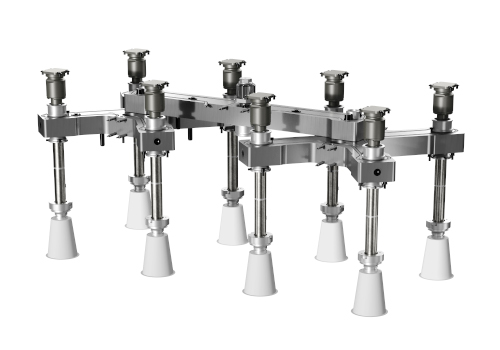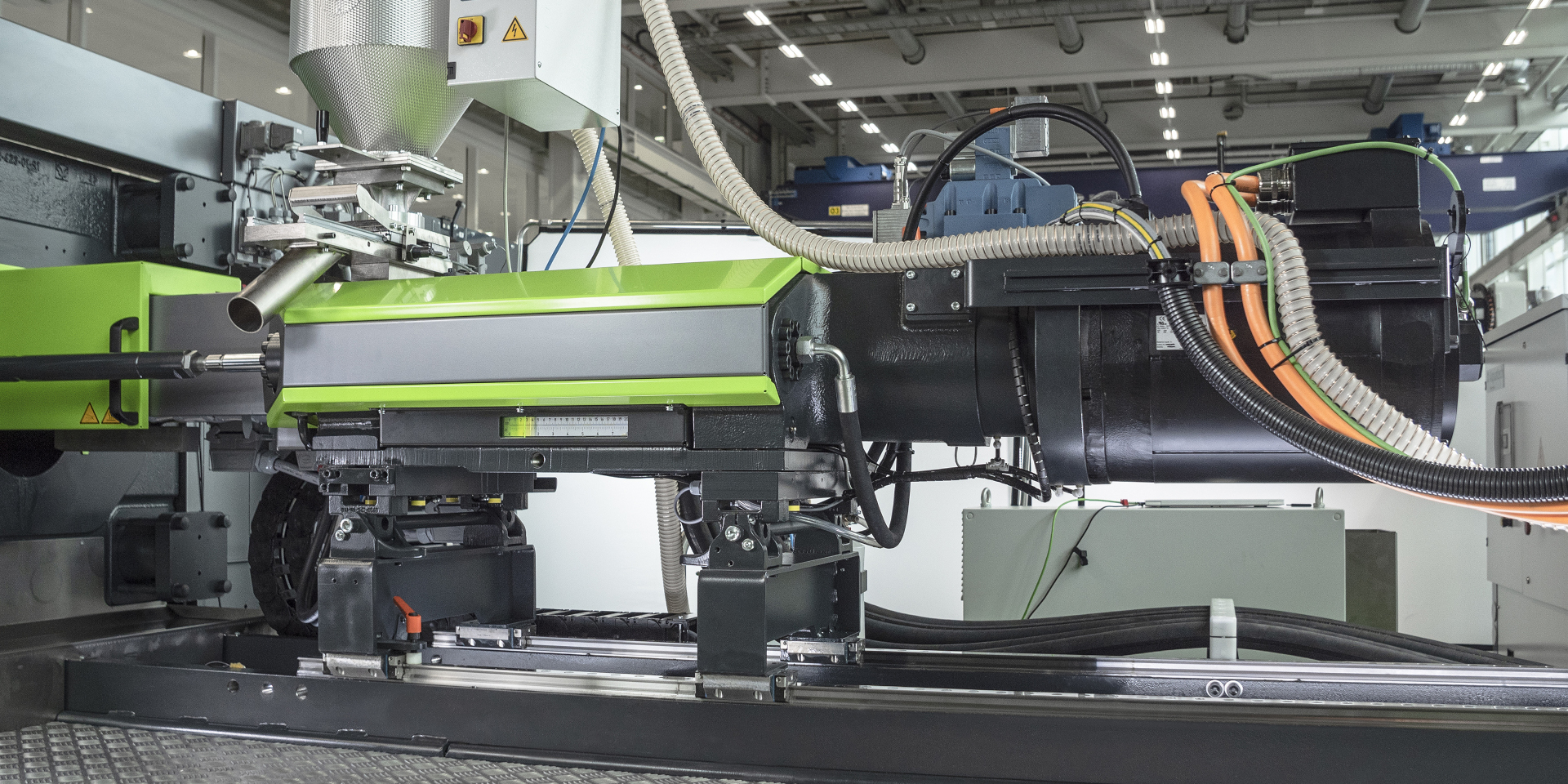Oerlikon HRSflow's Test Lab drives innovation in injection molding of biopolymers and post-consumer plastics.
By Nicoletta Boniardi - By courtesy of Plastix Magazine.
Sustainability is transforming the plastics industry, pushing companies to rethink their strategies and production processes to comply with European Union regulations, which have set specific targets for recycling and reuse. While recycled plastics currently account for only 13.5% of the content in new products and components (a 37% increase over the last four years), a recent analysis by Boston Consulting Group predicts that by 2030, they will meet 25% of European demand, reaching 65% by 2050. The biopolymer market is also experiencing positive growth, with production capacity in Europe expected to triple by 2028, nearing 7.43 million tons (Source: European Bioplastics).
Sustainable plastics appear to have a promising future, with significant application potential across many industrial sectors. However, they also raise technological challenges. The relatively recent—and continually evolving—introduction of new grades of bioplastics brings uncertainties regarding their performance and degradation behavior during production processes, particularly under specific operating conditions. Similarly, the processing of recycled materials presents various challenges, primarily due to the high variability of the input materials and the resulting fluctuations in their properties.
To address these challenges, it is essential to think differently, learning to identify the limitations of these polymers and overcome them—whether by designing components with geometries that compensate for these limitations or by developing technological solutions to optimize their processing.
This is the goal with which Oerlikon HRSflow launched the Test Lab, a cutting-edge technology center dedicated to developing innovative solutions for the injection molding of "green" plastics. The lab currently focuses on the packaging, cosmetics, caps & closures markets, and, more broadly, all eco-friendly applications.
A Center for Sustainable Innovation
Test Lab serves as a reference point for the industry, providing comprehensive support ranging from rheological and design analysis to testing, production, and maintenance. In addition to sampling and testing for preliminary analysis, it offers a dedicated service for special applications, allowing the optimization of system configuration and the prediction of part quality through advanced hot runner systems.
The lab is equipped with state-of-the-art equipment, including prototype molds to test the most challenging polymers, a complete range of nozzles and customized flow types, and injection molding machines with clamping forces ranging from 50 to 1,000 tons. To meet the needs of the packaging and cosmetics sectors, where there is growing attention to materials that reduce environmental impact, a new Engel e-speed 280 hybrid injection molding machine has recently been installed, optimized for processing bio-based polymers, PET, and especially r-PET.
Injection at 1,400 mm per second
The e-speed 280 is equipped with a new, highly powerful electric clamping unit and hydraulic injection unit, capable of reaching a maximum speed of 1,400 mm/s and an injection pressure of up to 2,600 bar, while producing parts with reduced weight and an extreme ratio of wall thickness to melt path. These parameters make it one of the most dynamic injection units currently available on the global market. For processing post-consumer materials, and specifically 100% r-PET, Engel has combined the new injection unit with a specially designed plasticizing unit. The machine's configuration also allows it to meet the high-performance requirements for molding thin-wall parts.

The new Engel e-speed 280 hybrid injection molding machine at Oerlikon HRSflow's Test Lab.
The Engel e-speed 280 is a key step in our commitment to sustainability - says Massimo Rossi Director of Research and Development at Oerlikon HRSflow. The potential of bio-based and post-consumer plastics is huge in many applications, but the high variability of their properties requires special attention. The e-speed 280 will allow us to explore new frontiers in materials and manufacturing processes, providing our customers with the best possible solutions.
Optimized Molding of r-PET and Biopolymers
Post-consumer plastics and biopolymers require careful management during the injection molding process due to narrower processing windows, the need for high pressures, and sensitivity to thermal and shear stresses. For this reason, we have developed a highly customized approach that adapts to the specific characteristics of each material and application, says Massimo Rossi.
Our journey, which began in 2014 with a project dedicated to PLA coffee capsule production, has allowed us to gain expertise in biopolymer processing, establishing ourselves as one of the first in the world capable of molding PHA pods using 32-cavity industrial molds. This future material, derived from bacteria, is the only polymer recognized by TÜV certification as free soil and marine biodegradable. Now, we aim to expand our expertise in recycled plastics, particularly r-PET, with the goal of developing advanced solutions to improve the quality of the finished product through the optimization of the production process.
The initial tests to verify the processability of recycled PET through injection molding have proven promising - continues Massimo Rossi. During the trials, the Engel e-speed was used for complex PET applications with a very high L/T ratio in various mold configurations.
Oerlikon HRSflow has developed the Xp series systems, designed to withstand high filling pressures (up to 2,200 bar) and enable fast injection and cycle times in a stable process with high part weight consistency. In addition to the standard version, a stack mold configuration for injecting reduced thicknesses, called Xd, is also available.

Stack mold equipped with Oerlikon HRSflow's Xd nozzle series, designed for the production of thin-wall packaging.
Commenting on the test results, Massimo Rossi emphasizes: We were able to achieve excellent results thanks to several technical adjustments, such as an optimal ratio between hot runner channeling (channel) and part geometry, combined with an appropriate system layout. Our deep knowledge of polymers allowed us to develop an injection system that fully leverages the capabilities of the Engel e-speed without compromising the polymer quality during the process. Even with extended holding pressure times, the product quality remained flawless, even when molding bottle-grade PET IV (0.75) and 100% r-PET.
The challenge now will be close collaboration among all stakeholders to achieve a reliable industrial product. From experience, injection molding PET – as well as r-PET – requires the utmost attention to all variables, leaving nothing to chance - concludes Massimo Rossi.

Oerlikon HRSflow Xp nozzle series, specifically designed for thin-wall packaging, ensures a reliable process and increased productivity.
Cutting-edge support
The path toward more sustainable production in the plastics industry involves the adoption of new technologies and the integration of innovative materials such as biopolymers and recycled resins. Thanks to the technologies available in the Test Lab, including the Engel e-speed 280 press, Oerlikon HRSflow is at the forefront in supporting companies looking to improve the sustainability of their production processes, offering tailored solutions to address the challenges of future materials.
“ZERO DEFECT" MOLDING OF SUSTAINABLE PLASTICS
Post-consumer plastics and biopolymers generally exhibit wider variations in characteristics from one batch to another compared to traditional virgin plastics. It is well-known that, like changes in environmental conditions, material variations alter the flow properties of the melt during the injection phase, negatively affecting the quality of the molded parts. In the worst-case scenario, parts may end up as scrap, resulting in wasted resources and energy. As a result, intelligent assistants that monitor, optimize, and continuously adjust key parameters for quality are becoming increasingly important, making the processes more stable.
The Engel iQ weight control digital assistant, featured in the Engel e-speed injection molding machine installed in Oerlikon HRSflow's Test Lab, is particularly suitable for molding these types of materials. The software analyzes the pressure and screw position curves in real time during the injection phase and compares the measured values with a reference cycle. Based on this, new process parameters are automatically calculated and adjusted throughout the same production cycle with just a simple click on the injection molding machine's control unit. This closed-loop process control method allows for adjustments to the injection speed curve, switching point, and holding pressure curve, all without extending cycle time. Variations in material characteristics can thus be automatically compensated for, ensuring consistently high quality of the final product while minimizing waste.





